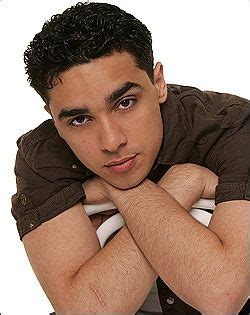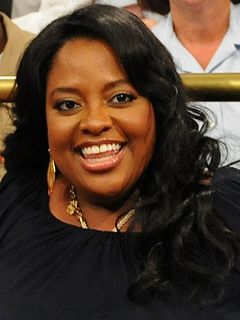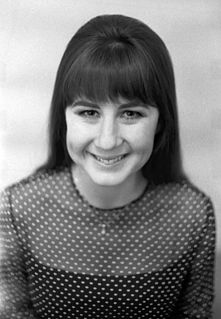A Quote by E.J. Bonilla
For a while I felt like I spoke a different language than my immediate family. It wasn't until my teens that I met and got to know better members of my extended family (my cousin Alma in particular) that self- identified as artists. Something in us clicked together; in the way we thought, in the language we chose to use, in what we enjoyed. She helped me see and appreciate a lot both about myself and my loved ones.
Quote Topics
About
Appreciate
Artists
Better
Better Me
Both
Chose
Clicked
Cousin
Different
Different Language
Enjoyed
Extended
Extended Family
Family
Felt
Got
Helped
Identified
Immediate
Immediate Family
Know
Language
Like
Lot
Loved
Loved One
Loved Ones
Me
Members
Met
My Cousin
Myself
Particular
See
Self
She
Something
Spoke
Teens
Than
Thought
Together
Until
Us
Use
Way
While
Related Quotes
Some feminist critics debate whether we take our meaning and sense of self from language and in that process become phallocentric ourselves, or if there is a use of language that is, or can be, feminine. Some, like myself, think that language is itself neither male nor female; it is creatively expansive enough to be of use to those who have the wit and art to wrest from it their own significance. Even the dread patriarchs have not found a way to 'own' language any more than they have found a way to 'own' earth (though many seem to believe that both are possible).
Being a slow reader would normally be a deficiency; I found a way to make it an asset. I began to sound words and see all those qualities - in a way it made words more precious to me. Since so much of what happens in the world between human beings has to do with the inconsideration of language, with the imprecision of language, with language leaving our mouths unmediated, one thing which was sensuous and visceral led to, in the use of language, a moral gesture. It was about trying to use language to both exemplify and articulate what good is.
When I go back to family reunions everybody goes, 'Hey cousin! Hey Auntie!' And I'm like, 'Okay I don't know you, I have no idea who you are.' I am auntie and cousin for so many and even the ones in prison call me collect. And I'll be like, 'Which of my family members are giving you this phone number?'
It has not been definitively proved that the language of words is the best possible language. And it seems that on the stage, which is above all a space to fill and a place where something happens, the language of words may have to give way before a language of signs whose objective aspect is the one that has the most immediate impact upon us.
I just love any kind of language that can change the energy in a room. There are no limits for me, as long as it feels like it's being used in a particular way to garner or elicit a very particular reaction, so that you can then use that reaction later for something else. But when it's gratuitous language or physical exposure, then I get a bit like, "Oh! Put it away!"
Dr. Adler had instructed me to always say whatever I was thinking, but this was difficult for me, for the act of thinking and the act of articulating those thoughts were not synchronous to me, or even necessarily consecutive. I knew that I thought and spoke in the same language and that theoretically there should be no reason why I could not express my thoughts as they occurred or soon thereafter, but the language in which I thought and the language in which I spoke, though both English, often seemed divided by a gap that could not be simultaneously, or even retrospectively, bridged.
You want to know what I was thinking?...I was thinking that I wished you'd been with me the last couple of days. I mean, I enjoyed getting to know everyone better. We ate lunch together, and the dinner last night was a lot of fun, but it just felt like something was wrong, like I was missing something. It wasn't until I saw you walking up the beach that I realized it was you.
































